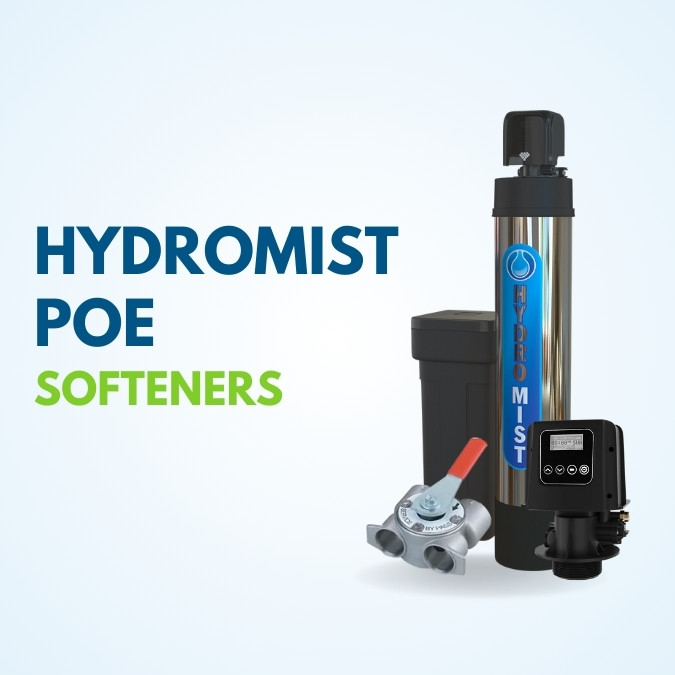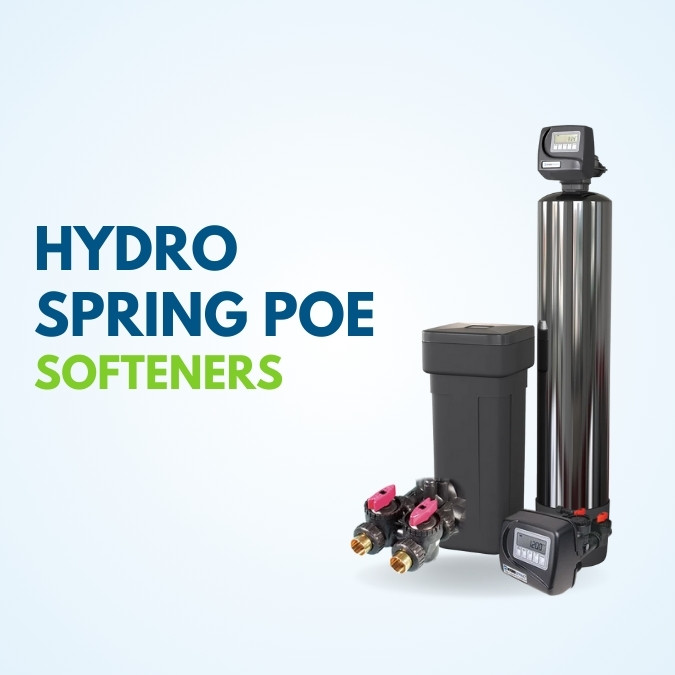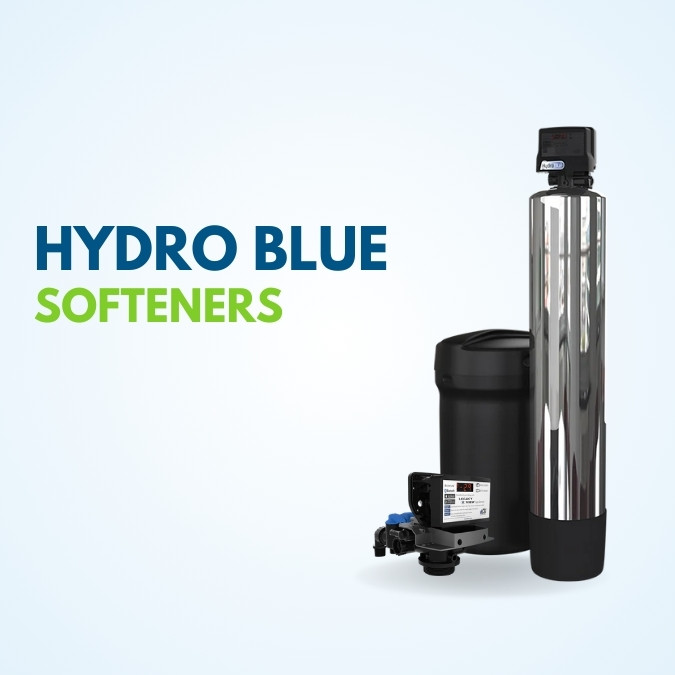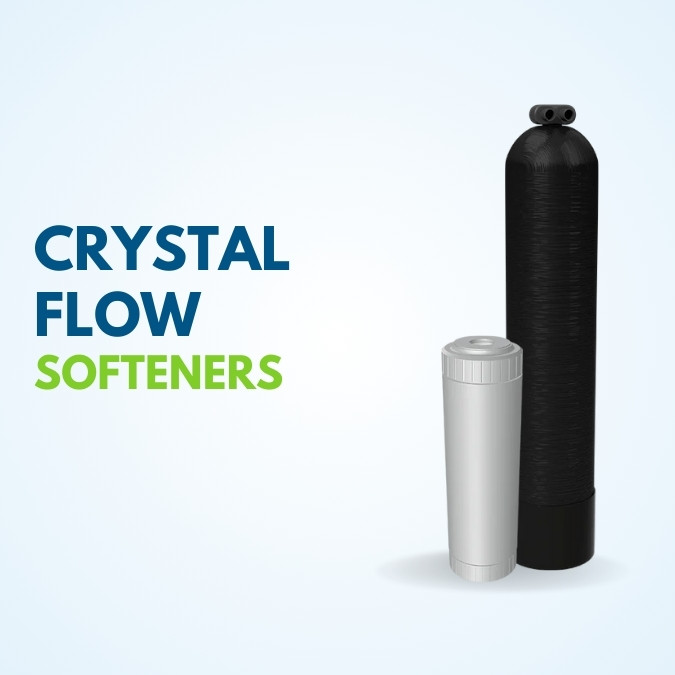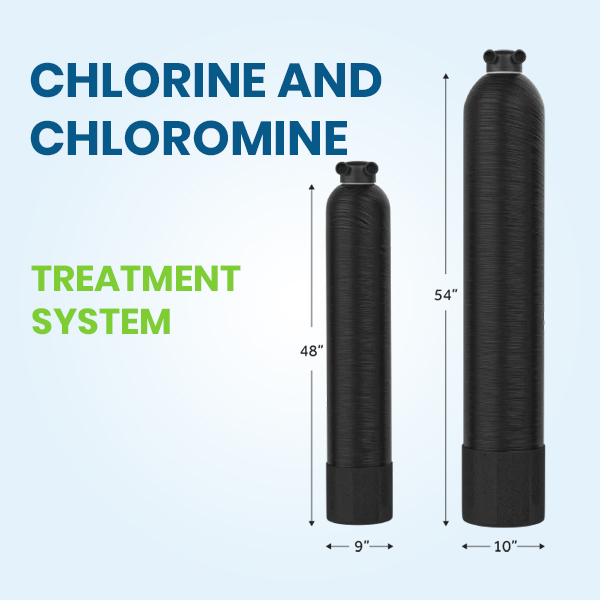No products in the cart.
Water softener Systems
HydroMist POE Water Softener
$2,290.00 – $2,559.00Price range: $2,290.00 through $2,559.00 Select options This product has multiple variants. The options may be chosen on the product pageHydro Spring POE Water Softener
$2,295.00 – $2,650.00Price range: $2,295.00 through $2,650.00 Select options This product has multiple variants. The options may be chosen on the product pageHydro Blue Water Softener
$2,395.00 – $2,595.00Price range: $2,395.00 through $2,595.00 Select options This product has multiple variants. The options may be chosen on the product pageCrystal Flow Water Softener
$3,199.00 – $3,398.00Price range: $3,199.00 through $3,398.00 Select options This product has multiple variants. The options may be chosen on the product pageChlorine and Chloromine Treatment System
$1,600.00 – $1,900.00Price range: $1,600.00 through $1,900.00 Select options This product has multiple variants. The options may be chosen on the product pageTransform your water quality today!
Explore our comprehensive dealer catalog for top-notch treatment solutions.
What is a Water Softener?
A water softener is a device that tackles the issue of hard water, which has high levels of minerals like calcium and magnesium. These minerals can create problems such as scale buildup in pipes, decreased efficiency of water-using appliances, and dry skin and hair. Water softeners work by swapping these hard minerals with softer ones, typically sodium or potassium, using ion exchange. This process helps to keep your water soft and your home running smoothly.
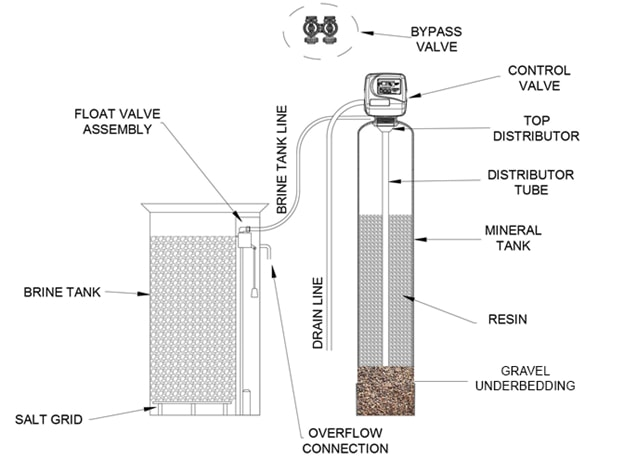
What is Hard Water?
Hard water contains high levels of minerals, such as calcium and magnesium. This can cause various issues in your home. Some common signs of hard water include:
- Dry and itchy skin
- Brittle hair
- Spotty dishes and silverware
- Limescale buildup in appliances
- Stains on fixtures and surfaces
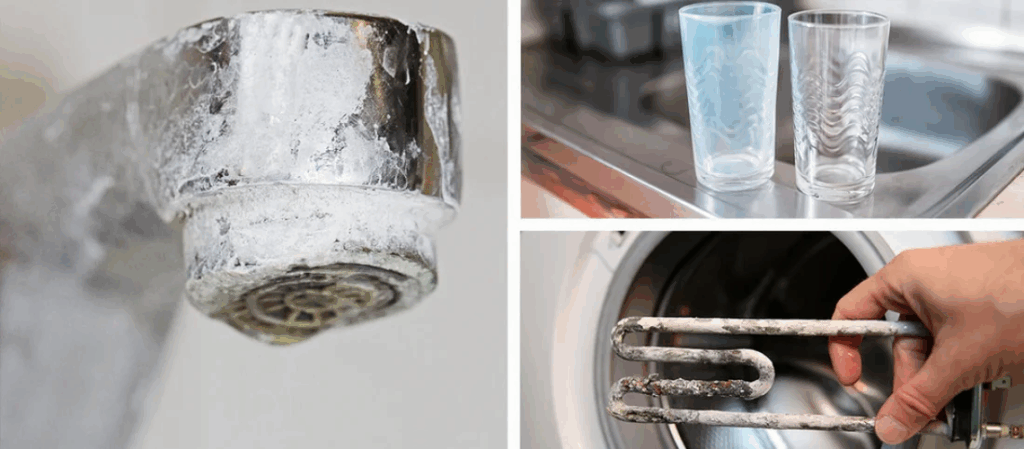
Benefits of Using a Water Softener
Protect Your Home and Appliances
Hard water can cause mineral buildup in your pipes, restricting water flow and leading to pipe damage over time. This buildup also decreases the efficiency and lifespan of your appliances, including dishwashers, washing machines, and water heaters. Installing a water softener helps prevent these issues, ensuring your home’s plumbing and appliances function efficiently and last longer
Improve Skin and Hair Health
Soft water is much kinder to your skin and hair, leaving them feeling softer and smoother. Hard water, however, can leave a residue that makes skin dry and hair brittle
Cleaner and Softer Laundry
Clothes washed in soft water come out cleaner, softer, and more vibrant. Hard water can cause fabrics to wear out quickly and leave soap residues behind, making laundry feel rough and dull.
Save Money on Soaps and Detergents
With soft water, you need less soap and detergent to achieve the same cleaning results, reducing your household expenses on these products by up to 75%.
Spotless Dishes and Fixtures
Hard water often leaves spots and streaks on dishes and glassware. With a water softener, your dishes come out sparkling clean, and your plumbing fixtures stay shiny and free of deposits.
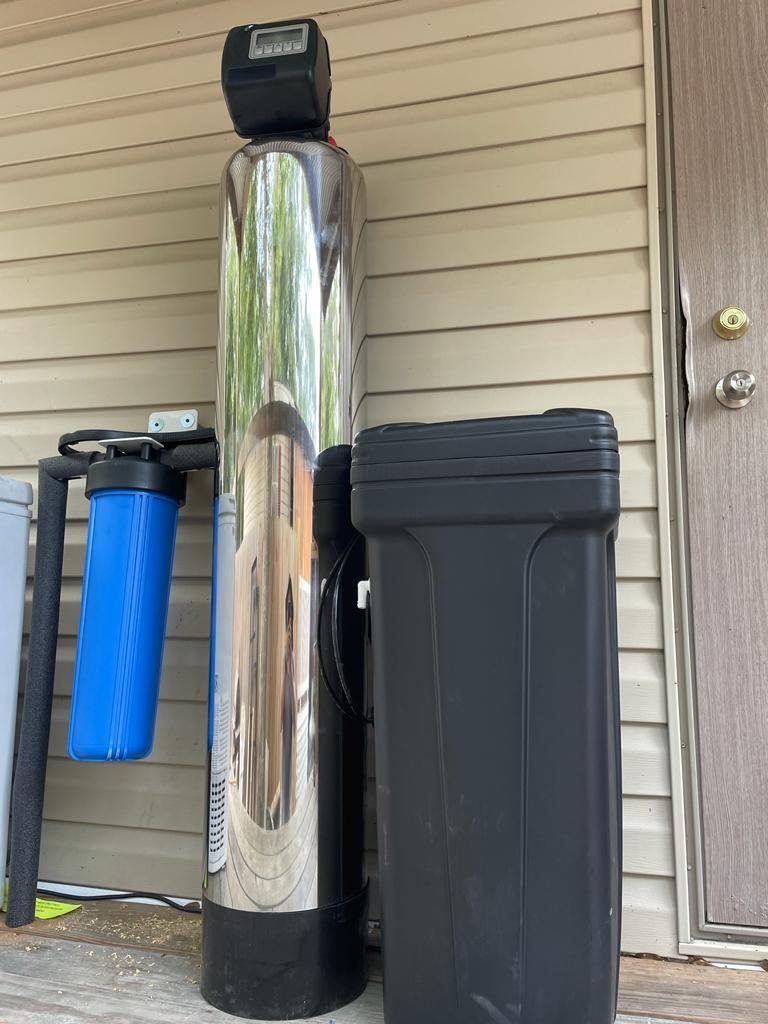
Water softeners use an ion exchange process, exchanging hard ions like calcium and magnesium for softer ions such as sodium or potassium. This process typically occurs in a resin tank, where the ion exchange occurs.
Yes, softened water is safe to drink. However, if you are on a sodium-restricted diet, consider a potassium-based softener or consult your doctor.
While some homeowners with plumbing experience may be able to install a water softener, it is generally recommended that a professional do the job to ensure it is set up correctly and efficiently.
The frequency of adding salt depends on the hardness of your water and the size of your water softener. Most systems require salt to be added every 4 to 6 weeks.
The primary maintenance task is regularly checking the salt level and adding salt when necessary. Some systems also require periodic cleaning of the brine tank.

